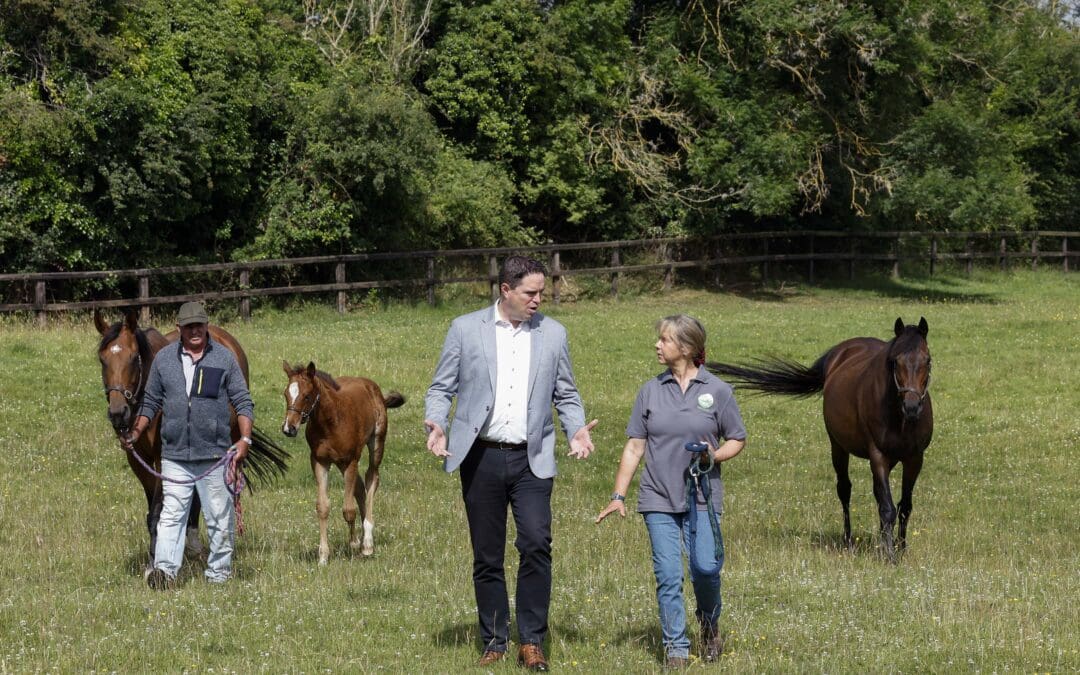Maintaining the quality, safety and sustainability of Irish beef to ensure continued consumer confidence at home and abroad is essential for the future of the sector. The positive perception of Irish beef among consumers has been cultivated over many decades and it is vital that it is maintained. Its quality and unique production systems were recognised last year when Irish Grass Fed Beef was awarded Protected Geographical Indication (PGI) status by the European Commission. This All-Island PGI status was achieved through a collaborative effort involving beef stakeholders from North and South over several years.
The Irish beef sector is not resting on its laurels however, and efforts continue to increase the attractiveness of Irish beef products to foreign markets through raising quality and sustainability standards even further.
There is close collaboration with across Government Departments, State Agencies including Bord Bia and the embassy network on maintaining existing markets and targeting new markets.
CAP Strategic Plan 2023 – 2027Â
The commitment to sustainability requires a whole of sector approach. The Department of Agriculture, Food and the Marine (DAFM) through the CAP Strategic Plan (CSP) 2023 -2027 and targeted national schemes are providing innovative solutions.
For example, funding of €300m million has been committed  by the Department in recent years for the reduction of enteric methane emissions through genetic improvement programmes such as the Suckler Beef Carbon Efficiency (SCEP), on-farm investment through the Targeted Agriculture Modernisation Scheme (TAMS 3), the National Genotyping Programme –  the programme is based on a cost sharing model between the Department, the beef and dairy industry, and participating farmers – and climate objective inclusion in the Economic Breeding Index.
The Suckler Carbon Efficiency Programme (SCEP) aims to provide support to approximately 16,000 Irish beef farmers to improve the environmental sustainability of the national beef herd. The programme builds on the gains delivered in recent years through the Beef Data and Genomics Programme (BDGP) and the Beef Environmental Efficiency Programme (BEEP) by improving the genetic merit of the Irish suckler herd. These farmers have either successfully completed or are currently completing the SCEP training programme ahead of the deadline on the 15th of November 2024 and it is to their credit that they are so committed to knowledge acquisition and upskilling to improve the sustainability of their beef production systems. To aid this process, CAP Network Ireland has developed the SCEP Training Support video, to assist farmers in completing the course.
TAMS 3 offering significant assistance to Irish beef farmers to increase their sustainability through generous financial supports for investment measures in both the farmyard and out on the land. General farmers are entitled to 40% supports with and investment ceiling of €90,000 or €160,000 in a partnership. Young farmers, women farmers and organic farmers can avail of 60% supports. The new TAMS 3 Nutrient Importation Storage Scheme is offering supports of 70% for investment in storage facilities for imported slurry.
Investments with assistance from TAMS 3 is helping beef farmers to invest in animal welfare, animal housing, nutrient storage, water quality protection, grassland management and farm safety measures to improve the lives of farmers and their cattle and to protect the environment. Go to our Publications section to view our range of information leaflets outlining the sustainability measures eligible for TAMS 3 support.
Industry also have an important role to play. For example, Meat Industry Ireland (MII) recently published a new sustainability charter with key measures including increased investment, enhanced reporting and the implementation of methane mitigating breeding strategies. This Charter for Sustainable Irish Beef was signed by beef producing members of MII, the Ibec sector association representing beef, as well as pork and lamb processing facilities.
Agricultural EmissionsÂ
The Annual Review of the Agriculture and Land Use, Land Use Change and Forestry (LULUCF) sector by the Climate Change Advisory Council recently acknowledged the gains made by the Irish agricultural sector in meeting its commitments to climate change mitigation targets. Considerable progress was made in 2023 with emissions reduced by 4.6% relative to 2022.
Some of this reduction was thanks to a significant decrease in nitrogen (N) fertiliser usage. Of the nitrogen fertiliser used in 2023, there was a recorded 15% increase in the use of protected urea, accounting for 22% of straight nitrogen fertilisers, compared with 49% CAN and 29% unprotected urea. Many beef farmers played their part in this reduction of chemical nitrogen (N) fertiliser with many now turning to clover and multi-species swards to naturally fix more nitrogen (N) in their soils.
Innovative research in feed additives such as Meth-abate and Greenbred will also assist farmers to reduce enteric methane emission from their herd in the future. Research in recent years has led to significant scientific advancements in the area of methane-reducing feed additives and low-emission breeding strategies. These technologies are now at the point of being ready to roll out onto Irish farms. Having received European Food Safety Authority approval, 3-NOP product has been trialled on 18 Teagasc Signpost farms in 2023 and 2024. Results show up to a 30% reduction in Methane during housing. An additional investment of €6.2m in climate mitigation and adaptation research projects has also been secured.
Stay up to date with all the latest stories by visiting our News section




